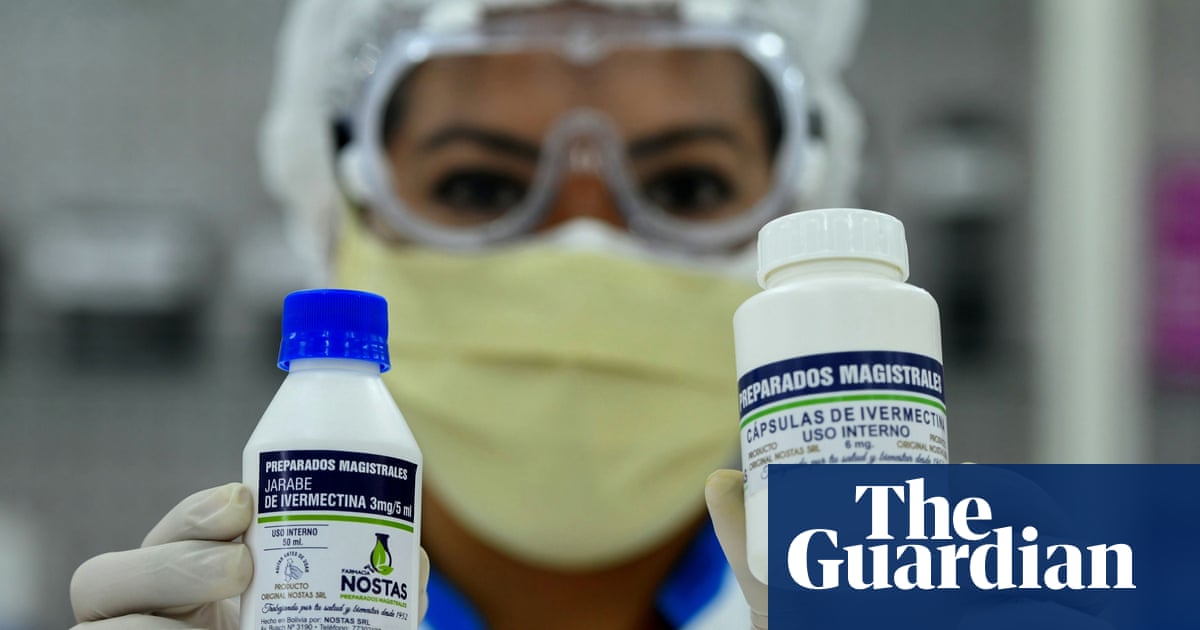
Overnight, several colleagues had emailed him a large study that had just been published online which examined the effect of the anti-parasite drug ivermectin on Covid-19 hospital patients around the world.
“I saw the researchers had looked at this huge database … they included 169 hospitals in Asia, Europe, Africa, North America and South America and 1,900 Covid-19 patients seen by hospitals in those countries by 1 March,†Chaccour says.
The study methodology said its data had been obtained from Surgisphere.
The Surgisphere website says it owns a data analytics system called QuartzClinical which monitors global healthcare in real time through data collection from 1,200 international hospitals.
Promotional material says the database “has led to advances in care for kidney failure, aneurysms, lymphedema, peripheral artery disease, colon cancer, and cardiovascular diseaseâ€.
Surgisphere itself came under greater scrutiny, culminating in two of the world’s most prestigious medical journals reconsidering studies based on its data, an about-turn from the World Health Organization on research into a potential Covid-19 treatment, and a Guardian investigation that uncovered worrying inconsistencies in the Surgisphere story.
Chaccour’s first surprise was that the study had found 52 Covid-19 patients who had received ivermectin.
Yet the study said patients around the world had already been receiving it.
The study also included data from three patients in Africa who, as of 1 March, were on mechanical ventilation and receiving ivermectin.
“They talk about propensity scores, this huge database from 169 hospitals, five continents, it sounds fancy, and people started latching to this study out of hope,†Chaccour says.
On 2 May, two weeks after the study appeared online, a doctor in Peru wrote a white paper for the government about the use of ivermectin to treat Covid-19, heavily citing the preprint Surgisphere study as evidence.
Less than a week after the white paper was published, the Peruvian government included ivermectin in its national Covid-19 therapeutic guidelines.
He sent the lead researcher on the preprint paper an email with some questions and concerns about the data, which were forwarded to a co-author of the paper, the Surgisphere founder and chief executive, Dr Sapan Desai.
Instead of answering his questions about the data, Chaccour says, Desai flattered him and spoke enthusiastically about potential collaboration.
Then in May, the most respected medical journal in the world, the New England Journal of Medicine, published a study featuring two of the same authors as the pre-print ivermectin study.
The study also based its results on the Surgisphere QuartzClinical database, including data from Covid-19 patients from 169 hospitals in 11 countries in Asia, Europe and North America.
“So ivermectin threatens to become the new hydroxychloroquine in Latin America.†Researchers in Latin America who found hydroxychloroquine was not effective for Covid-19 began receiving death threats after their findings were published in a US medical journal.
On 22 May, the Lancet published a hydroxychloroquine study involving 96,000 patients around the world which found the drug was associated with a higher risk of heart problems and death in those with Covid-19.
The authors again included Mehra and Desai, and again, Surgisphere’s QuartzClinical global database was used, this time to obtain the data from 1,200 hospitals?
Hydroxychloroquine did not work for Covid-19, and in fact could be dangerous in those patients.
On Thursday, following growing concern from the medical community about the Lancet study and the database, the WHO reversed the decision to halt hydroxychloroquine trials.
However, WHO officials also reiterated there was as yet no evidence that hydroxychloroquine, or any drug, reduces the mortality in patients who have Covid-19. .
It led to the Lancet issuing a correction, but Desai insisted the error did not change the overall findings of the study – that hydroxychloroquine was ineffective and potentially dangerous in the treatment of Covid-19 patients.
An investigation by Guardian Australia found the database the studies were based on contained seriously questionable data.
Desai did not adequately answer questions from Guardian Australia about how Surgisphere, once listed as a medical education company, came seemingly out of nowhere to become a data analytics company implementing a global database using artificial intelligence and cloud sharing in a matter of months, and with just 11 staff.
Of the database, Desai said: “We use a great deal of artificial intelligence and machine learning to automate this process as much as possible, which is the only way a task like this is even possible.â€.
Desai later said hospital staff were responsible for de-identifying patient data before feeding it into the database.
Desai said the way Surgisphere obtained data was “always done in compliance with local laws and regulations.
“It is not clear how Surgisphere gets race data, since collecting it is uncommon in most countries, and illegal in some,†Chaccour says.
Despite the Surgisphere database collecting patient data including lab data and physical exam findings, the study published in the Lancet said “the data collection and analyses are deemed exempt from ethics review�
Why would Desai allow questionable data to be relied on by prestigious journals and run the risk that the errors would be picked up by editors, or by other researchers around the world once published.
“Although an independent audit of the provenance and validity of the data has been commissioned by the authors not affiliated with Surgisphere and is ongoing, with results expected very shortly, we are issuing an Expression of Concern to alert readers to the fact that serious scientific questions have been brought to our attention,†the editors said
In response to questions from Guardian Australia, Desai said the Lancet paper should not be overinterpreted and that the study itself recommended that randomised control trials be “urgently completedâ€
But in a YouTube video talking about the Lancet study, Desai also said of Surgisphere: “The real question here is, with data like this, do we even need a randomised control trial?â€
